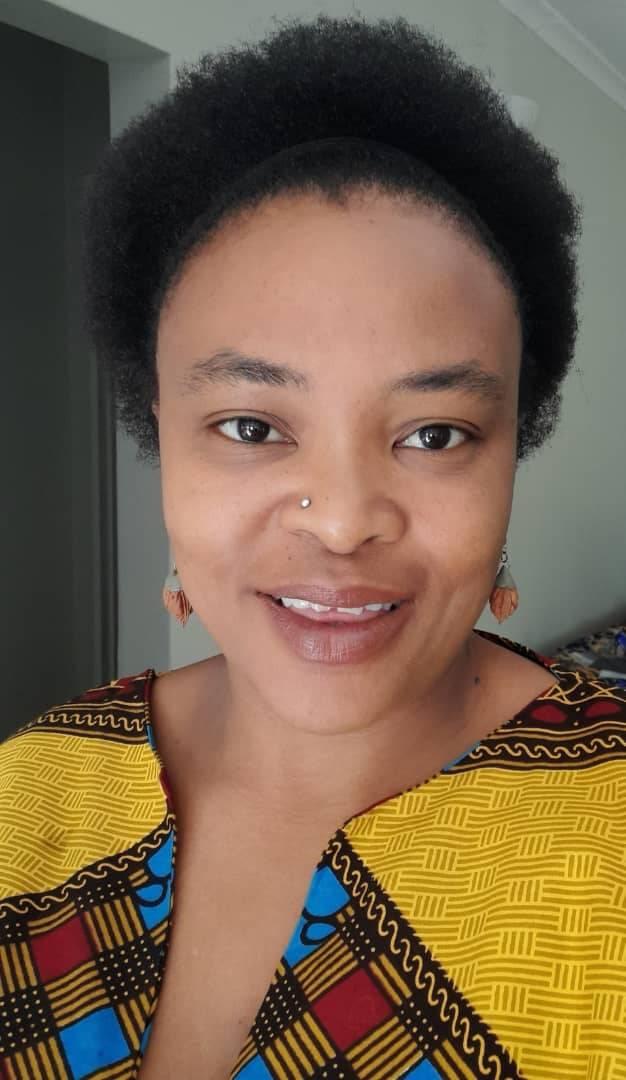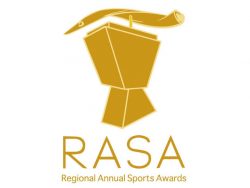Meet the first Eswatini Paralympic Committee President

Meet the first Eswatini Paralympic Committee President
…. Madalitso Mtine is tailor-made for the position after landslide in elections
Assertive, proactive, humble, firm, confident and a straight talker, all these words and adjectives do not tell the whole story of one Madalitso Mtine, the fiery lady administrator, who has just taken over the Paralympic Committee’s presidency.
Whosever coined the axiom; ‘dynamites come in small packages’, must surely have had this vivacious, cheerful and bubbly personality in mind.
She has already inscribed her name with iron ink in the country’s sports Hall of Fame for becoming the first president of the Paralympic Committee after being elected into office by the country’s National Sports Associations.
Read on to find out what she has in store for local sports.
Briefly tell our readers who Madalitso Mtine is:
I was born in Harare to a Zimbabwean mother and Zambian father and I am a naturalised Swazi. I went to school in Zimbabwe, Zambia and Eswatini. In Eswatini I attended St. Marks primary, Herman Gmeiner (SOS), Waterford Kamhlaba and the University of Eswatini where I obtained BA Degree in Social Science 9Political Science and Industrial Sociology). I am a Practical Development practitioner which simply put is that I facilitate process of development in varying contexts.
I have worked within the socio-economic justice sphere for over 16 years. I am an activist through and through and simply premised on the idea that people matter. Acknowledging their existence to the extent that people can think, plan and act and therefore should be treated with dignity and accorded a space for moulding or co-creating a world that prioritises the dignity and inclusion of all. I bring those same beliefs to sport, as we look to become more holistically inclusive.
I have always had an avid interest in sport and have been involved in numerous sporting codes since pre-primary. Sport has always served as a tool of discovery and unity for me, outside of the pure interest in the competitive, skill and health aspects. I believe that people with disabilities should not be afforded the opportunity to engage in sport but it should be a right. A right that they can access and the opportunity they should have is to have a selection of sporting codes to be a part of at the levels of their interest whether it be as players, technical officials or administrators.
How did your journey in sports start?
My journey with sports began at the tender age of about four and a half years old in Harare, Zimbabwe in PE class when they would make us compete. I realised I could outrun my class and was good at ball sports.
At this point, I was introduced to a few strange sports (or at least strange to me at that time). I fell in love with tap dancing, swimming, diving, gymnastics, karate and at that point ballet was my absolute favourite. I began representing my school club at regionals for diving, swimming and gymnastics at the age of five years.
When I moved to Swaziland, as it was known then, I continued with gymnastics at St. Marks Primary and played netball. I enjoyed being active and when I moved to SOS Primary, I did drum majorettes, netball and sibhaca. I was that girl that secretly wanted to be a boy because it seemed they had way cooler variety and activities.
Growing up, which sports would you say captured your imagination?
I really only began to explore different sports comparatively and whether or not I liked them from the age of eight years and that journey began in Zambia, at Simba Primary School. I played netball, swam, did track and field, softball, volleyball and soccer. There was no girls’ soccer back then and so I played with the boys. This was unusual though because I trained with boys in all my other sports save for netball.
After moving back to Eswatini, in high school, I developed a real love for athletics, volleyball, soccer (field and indoor), squash, swimming and basketball. When I was not feeling up to sprint training, I would run off to netball which I played very well but for a number years was not sure If I liked it or it had been forced into me because I was a female. Needless to say, I rediscovered my love for it and it introduced me to basketball.
I have had the honour of representing the country (Eswatini) at junior and senior team level in the 100m, 4x100m and in the long jump. As an assistant manager for Eswatini U-17 Basketball Boys, we won a silver medal in the Four Nations Tournament. And at the Zone VI and CUSCA levels, represented the nation in soccer, volleyball and basketball.
There are some sports I enjoyed watching more than playing. These are cricket, diving, figure skating, hockey, tennis, badminton, chess, rugby, bowls and dance.
Congratulations on being elected the first Paralympic Committee Chairperson. How did you feel?
Thank you. Firstly, I would like to thank the Basketball Association of Eswatini (BASE) for their nomination and confidence in what I have to offer. Secondly, a huge appreciation for the vote of confidence by all represented associations. I didn’t know what the outcome was going to be. The biggest thing for me was and still is what can I do to contribute to the systematic development and establishment of para sports in Eswatini.
How do I feel? I am humbled and honoured at the same time. I would be lying if I didn’t say I am nervous. I am nervous because all I want is for sport especially para sports to be the biggest winner. I am excited to be one of the instruments to be used for this cause. So I guess I am terrifyingly excited and looking forward to the adventure however, under no illusions of the magnitude of this task as well as the intense nature of building steady foundations. I am definitely feeling the blessings of the Almighty who guides us.
What will be your first task as President of the Paralympic Committee?
My first task will be to move swiftly on getting the administrative component of the EPC completed. There are a great many places to begin, however, I believe that three critical matters need to be addressed possibly simultaneously.
Firstly, we must look at the policies we may need to develop to ensure the work can run as smoothly as possible. Aligned with this is also, not only the EPC Executive but all sports associations undergo a series of trainings to understand the terrain of working with disabilities in general and more specifically in sport.
Secondly, the executive committee needs to engage in an audit with its members to establish where each one is and how they visualise the development of their para sporting code.
Thirdly, together with the executive committee develop a four-year roadmap with strategic goals and actions. Prioritising what we can do with what we have and not try to develop every aspect of para sport at once, which also includes resource mobilisation in its broadest sense, not just fiscal.
Will your new executive co-opt additional members?
There is provision for different forms of co-option of additional members which also includes an option through various sub-committees of the Board. We certainly will use the latter proactively while also looking to see what may organically grow into areas or items of concern that require additional hands and heads.
In your view, are people living with disabilities in the country well represented in sports?
I do believe there are pockets of representation at present and a differing levels, notably athletics, basketball, dance, rugby, volleyball taekwondo, teqball and tennis. I may not be privy to all the activities that are currently unfolding but this will be addressed as we look into who is doing what where and how.
What can be done to encourage more people with disabilities to take part in sports?
Several things can be done. For instance, the SRC has the Shukuma outreach programme and this has been extended to para sports and can be used more intension ally to advance awareness and the engagement of people with disabilities in sport.
Able-body sporting clubs can recruit and add to their clubs with para sport codes within their bracket. We can also create regular roadshows, mini tournaments in the four regions possibly beginning with five to eight codes and gradually increasing the number of sports over time as the associations grow within their codes.
This is certainly not exhaustive of what can be done but shows us that we can start with what we have and build. And we have something!
As a woman, are you happy with women participation in sports?
This is an unfair question because happiness is subjective, nonetheless, I will oblige.
There has been a considerable growth in the number of women in sports at various levels to which the associations, the Council and EOCGA at large have played a large role. While this is commendable, there is a section women representation in the senior categories is not where it can be. We do not have a strong social and/or professional leagues and tournaments than can keep our female athletes in the sport. It is almost as if there is an unstated cut-off date for women participating in sport. It can also be stated that is a choice, however, when the options are few, the choice you make may not always be the one you want and I feel that women sometimes have to take such misguided choices of having to exit the arena.
Thank you for your time Madalitso
Pleasure all mine
FACT FILE
Full names: Madalitso Ingrid
Surname: Mtine
Nickname: Mada (not so much of a nickname though, as it is just the shortened version of my name)


Leave us a reply